
NATURE 2000 comprises a designation of nature sites of EU importance. However, after consultations with water managers, it became clear that NATURE 2000 sites located in the river valleys imposed new challenges for water resources management. Action was taken by GWP-Poland and WWF-Poland to find solutions. The project demonstrates that multi-stakeholder dialogue is a basic requirement for the solution of problems involving different perspectives and priorities.
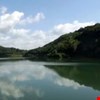
Climatic conditions of Poland are characterized by small amount of precipitation that is relatively favourable distributed during a year. Most of the precipitation occur during summer, which is the period with the highest demand for water. Despite this fact, in most of the country (except the seaside and the highest mountains) a significant deficit of water can be observed.

In Romania, water is subjected to deteriorating quality. In rural areas, 70% of the population depend on small scale water supply systems, which are often exposed to human and animal manure. To combat this, the project Safe Sanitation, Health and Dignity was initiated. This project shows that programmes could connect local communities, regional and national authorities, and contribute to the realisation of the allocated targets of the protocol of water and health.

The EU Water Framework Directive requires member states to identify and implement program of measures for reaching good water status for all water bodies by 2015. In Romania, this requires substantial investments. In response to address the pressures in the Romanian river basins, a number of measures have been identified, divided into basic measures and supplementary measures. The key lesson is the value of approaching the issue with several complimentary measures.
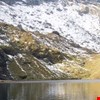
After the USSR was dissolved, Romania has experienced water scarcity for agriculture. The World Bank and USAID are providing loans/funds for irrigation projects and to strengthen water users associations. This case thus illustrates that irrigation subsidies may be needed to support agriculture until farming efficiency improves and returns from the sale of agricultural products can cover costs.
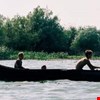
The Prut River is subjected to cross border pollution. Action was taken by the Eco-Counselling Center to initiate a project to facilitate a regional, trans-boundary approach, to enable the multi-stakeholders involvement and to ensure transparency and participation on the Draft Prut River Management Plan. This case highlights an applicable approach to improving water policy and management through stakeholder integration and cross-border cooperation.
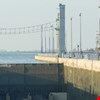
The beauty and wilderness of Danube floodplains was continuously deteriorated by human impacts. Construction of the Gabcikovo water dam caused direct clearance of minimum 2,500 ha of floodplain forests and influence of water regime of other areas. A regional NGO BROZ located in Slovakia, has developed a project for EU funding scheme LIFE. The project aims to preserve last remaining natural floodplain forests in Slovak part of the Danube floodplain and to introduce sound, sustainable forest management in the area. As a result, a Sustainable Forest Management Strategy has been elaborated to give a base for new forest management plans.
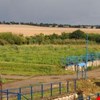
Following a decision to decentralise water and wastewater services, many questions regarding the sustainable financing of water and waste services was raised. Recognising that economic and financial conditions are critical to the effectiveness of various tariff and effluent charge reforms, a financial model (ASTEC) was devised. This case demonstrates the value of using economic instruments to support the implementation of IWRM management objectives.
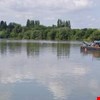
To improve monitoring and management of river basins in Slovakia, a project was initiated among secondary school students with the objective to attract the attention of young generation to the protection of the river basin and to mobilise the interest of local communities in public campaigns to improve the quality of river basin. The key lesson drawn from this case study is that linking education activities and local communities campaigns are effective tool for public participation.

Large scale projects in Slovakia caused negative effects in terms of biodiversity losses and reduced floodplain ecosystem functions. To combat this, a project “Integration of Ecosystem Management Principles and Practices into Land and water Management” of Laborec-Uh region was initiated. This case illustrates the importance of accounting for both biodiversity and economic returns when developing projects.